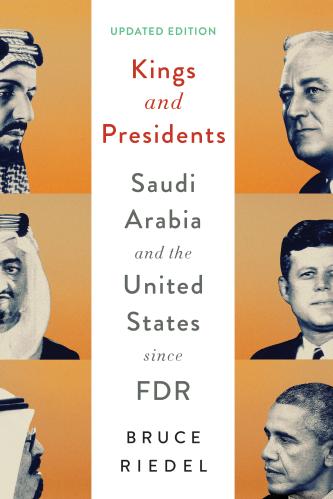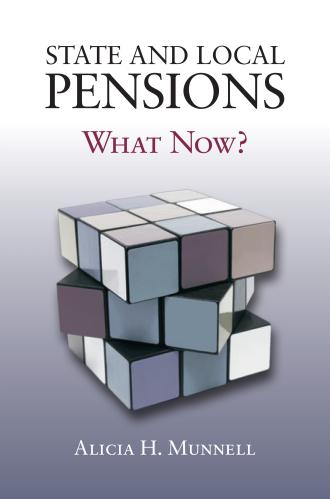 Few foreign policy challenges are “more difficult than Kremlinology at the height of the Cold War,” said Bruce Riedel, director of Brookings’s Intelligence Project, at a recent event. However, “Saudiology today” fits that bill. As the internal politics of the Saudi royal family become increasingly opaque, Riedel sat down with the Atlantic Council’s Barbara Slavin to discuss his new book “Kings and Presidents: Saudi Arabia and America Since FDR” (Brookings Institution Press). Here are five takeaways from Riedel’s November 21 book talk about Saudi politics and foreign policy.
Few foreign policy challenges are “more difficult than Kremlinology at the height of the Cold War,” said Bruce Riedel, director of Brookings’s Intelligence Project, at a recent event. However, “Saudiology today” fits that bill. As the internal politics of the Saudi royal family become increasingly opaque, Riedel sat down with the Atlantic Council’s Barbara Slavin to discuss his new book “Kings and Presidents: Saudi Arabia and America Since FDR” (Brookings Institution Press). Here are five takeaways from Riedel’s November 21 book talk about Saudi politics and foreign policy.
1. In 2018, the U.S.-Saudi relationship will observe its 75th birthday
At the height of World War II, President Franklin D. Roosevelt requested that Saudi King Abdul-aziz bin Saud (known in the West as Ibn Saud) “send a delegate to wartime Washington.” In 1943, the king sent Prince Faisal and Prince Khalid, both future kings, to the U.S. capital, where “they were dined, but not wined, in the White House,” Riedel quipped.
Why did the president divert attention to this part of the world while fighting raged in Europe and the Pacific? Riedel explained that FDR “wanted to convince the Saudis of the strength and vitality of the United States of America” in hopes that the princes would assure their father the king that Riyadh could “rely on the Americans after the war.” Riedel praised FDR for his diplomatic foresight. “It was a remarkable insight into FDR’s concept of what the post-war era would be like. It’s hard to imagine very many Americans in 1943 seeing ahead with the clarity that Roosevelt did.”
2. The U.S.-Saudi relationship is deeply troubled
President Donald Trump’s first foreign visit was to Saudi Arabia. Riedel described how “the Saudis flattered Mr. Trump in every way possible and he returned the flattery. And since then he has given them, in effect, a blank check for their foreign policy and for their internal politics,” including endorsing Crown Prince Muhammad bin Salman’s purge of the royal family.
However, “if the executive branch has a very close relationship with Saudi Arabia, that’s not true for the two other branches of our government,” Riedel observed. “The judiciary of the United States is now putting Saudi Arabia on trial … under the Justice Against Supporters of Terrorism Act, JASTA.”
The legislative branch feels similarly. Although President Obama vetoed JASTA in late 2016, Congress overruled the veto by very large margins.
Riedel added that “the last arms sales that went forward to the Hill passed with a margin of only two votes. And the administration hasn’t sent another arms sales up to the Senate since then.” He also predicted that the 9/11 trials would not absolve Saudi Arabia “of any responsibility for 9/11.”
3. Saudi Arabia’s involvement in Yemen’s civil war comes with enormous humanitarian and financial costs
Riedel characterized Saudi foreign policy as adventurous, interventionist, and reckless. “The war in Yemen, which is [Crown Prince] Muhammad bin Salman’s signature policy move, has turned into a quagmire. It was supposed to be Operation Decisive Storm. There’s nothing decisive about it except the worst humanitarian catastrophe in the world today.”
Citing Save the Children, Riedel emphasized that “if the [Saudi] blockade [of Yemen] continues … 50,000 children could die in Yemen before the end of this year,” while “seven million Yemenis are on the verge of starvation.”
Riedel also called attention to Riyadh’s defense spending in Yemen, which he described as “a well-kept secret.” Putting a low estimate at $700 million a month, Riedel underscored that “in a kingdom that doesn’t have the money, that’s an enormous expense of money.” This spending reflects the fact that “Saudi Arabia has one of the highest defense budgets in the world. In 2015, it had the third-largest defense budget in the world behind the United States and China. On a per capita basis,” Riedel said, “it came to almost $7,000 per person. Even Americans don’t spend $7,000 per person on the United States military.”
4. Purge of the Saudi royal family is unprecedented
In 30 months, Muhammad bin Salman “moved from defense minister to crown prince” removing two sitting crown princes in the process, Riedel explained. This consolidation of power, “unprecedented in Saudi history,” sidelined Muhammad bin Nayef, who Riedel described as “one of the preeminent counterterrorists in the world today … willing to take great personal risk, much more than his counterparts in most security services.” (read Riedel’s 2016 Brookings Essay on Muhammad bin Nayef.)
5. Muhammad bin Nayef’s removal will have a price in the world of fighting terrorists
In light of these events, Slavin asked Riedel if he was “worried about the capability of the kingdom to continue in terms of counterterrorism with Muhammad bin Nayef under, in effect, house arrest.”
“I’m very worried,” Riedel responded. “Muhammad bin Nayef … was the dynamic force that made the MOI [Ministry of the Interior] the successful counterterrorism element it was … [I]n the few months since he’s gone there’s been a measurable drop in efficiency … his replacement has no experience in this business at all.”
Riedel warned that “there is a price to be made in removing people like this, and the price will end up being in the practical world of fighting terrorists.”
You can watch the entire event here. And for even more expert analysis and historical highlights, pick up Bruce Riedel’s new book, “Kings and Presidents: Saudi Arabia and America Since FDR.” It available for purchase online or at a bookstore near you and is the perfect holiday gift for the wonk in your life.
Miranda Lupion contributed to this post.
The Brookings Institution is committed to quality, independence, and impact.
We are supported by a diverse array of funders. In line with our values and policies, each Brookings publication represents the sole views of its author(s).







Commentary
5 takeaways from Bruce Riedel’s talk on the U.S.-Saudi relationship
November 28, 2017